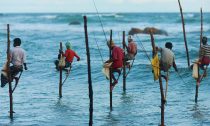
Ocean conservation has too long marginalized the very people best placed to lead the most powerful change: traditional fishing communities. Alasdair Harris, founder of Blue Ventures, talks to Ashoka’s Pip Wheaton, about how empowering the people who know the ecosystems best provides a myriad of benefits – to their communities, to food systems, and to our fight against climate change.
Philippa Wheaton: What role do traditional fishers play in climate adaptation and mitigation?
Alasdair Harris: If we look at the issue of climate break down and mass extinction, we quickly see that we’re changing our environment, on land and in the water, in ways that our species have never experienced. Against that backdrop, few will have their lives as profoundly transformed as traditional fishers, people that depend on the ocean. It is an environment that is changing enormously, and the changes are accelerating.
Conservation is essential to climate adaptation and mitigation. For example, safeguarding mangroves, sea grasses, ocean blue carbon; these are incredible stores and very powerful pumps of atmospheric carbon that lock it away in the seabed more powerfully than upland tropical rain forests. We can’t achieve the conservation of these ecosystems at scale without engaging the people that depend on the sea for survival.
Wheaton: How does conservation need to change?
Harris: We know that conventional approaches to the protection of nature, particularly in the global south, are wholly inadequate. Firstly, because they have often marginalized the very people who depend on their success. And secondly, because they can’t deal with the unprecedented scale and speed of change.
A sector that has alienated people needs to reimagine itself as one that delivers real value and benefits to communities on a daily basis. If we can fix that, then we have a pathway to scale. We have a market in this population that is truly global and through which solutions can be scaled up very quickly. At that point, the conservation sector becomes the people that interact with the ocean: the fishing population – who are overwhelmingly in low income countries in the tropics – interacting with some of the most important life and diversity on the planet on a daily basis. They have a far richer traditional knowledge of ecology and ecosystems than I do or than we as Western scientists might ever have.
Wheaton: How does Blue Ventures do that?
Harris: At Blue Ventures we focus on how we can support coastal communities. We see many community-level initiatives around the tropics in which coastal communities are taking practical action on the water to rebuild fisheries, safeguarding livelihoods, biodiversity, food security, and so on. The big wins for us are when we see traction in local management of the ocean in new geographies, and when we see those local institutions, community organizations, fisherfolk organizations, local conservation NGOs, delivering real results, getting good data and using those data, not for some post hoc analysis, but to actually guide a conversation around local marine stewardship on the water at a local level.
One community acting alone can develop a model and a lot of learning, but when those communities start to interact with one another, they accelerate what they’re doing at a much greater scale. They also have a much more powerful political voice and opportunity to influence the narrative around fishing, human rights, conservation, and the blue economy.
Wheaton: Can you give us an example?
Harris: Indonesia is a good example. It’s a country with a long history of international NGO involvement. It’s the biggest country in the world in terms of its marine territory. And it’s the most important country in the world in terms of fishing, marine biodiversity, and habitat loss. It’s the country of superlatives. We have been able to support Indonesian leadership and Indonesian actors to take incredible steps towards community conservation in 12 provinces across the country. We’re supporting over a dozen partner organizations, with a very small, exclusively Indonesian team of technicians who are hell bent on strengthening civil society engagement in marine conservation, human rights and fishing in Indonesia.
We’ve also demonstrated an approach that is much more human rights based than traditional conservation and is way more resilient to the shocks that come with ongoing climate breakdown. We’ve seen that this year with COVID. When flights are grounded, the most resilient organizations are those organizations that are present, permanent, and proximate to the issues.
Wheaton: So, your work is about more than just climate change?
Harris: We haven’t designed this from a climate perspective. We could frame the work that we do from a gender perspective, a food perspective, a climate perspective, a biodiversity perspective, a human rights perspective. It’s all of the above. We’re trying to optimize fishing in a way that creates human and environmental justice for traditional fishing communities, helping nature, helping people, providing food.
Wheaton: Can you tell us more about the intersection between climate change and our food systems?
Harris: More and more people are entering fishing because of declines in agricultural productivity throughout much of sub-Saharan Africa. Fishing is seen as a last resort. These are communities that are extremely vulnerable and have low adaptive capacity. And, tragically, the injustice of it is that these communities have contributed incredibly little if anything to climate breakdown. Industrialized nations and our consumption patterns since the Industrial Revolution are unleashing chaos and extinction on these systems.
Unfortunately, we have configured a global food production system from the ocean that is optimized for volume and for immediate profit. And it’s draining our oceans of life and undermining the lives of those millions of people. It is pushing us further to the point of irreversible ecological breakdown. The challenge that we face is how do we reverse that paradigm? How do we produce food for the people that need it most equitably, in a way that restores nature, and that uplifts the livelihoods and futures of those people that depend on the sea? And by the people that depend on the sea I’m not talking about the super trawlers in the North Sea.
Wheaton: How does your work fit in the wider context of climate justice?
Harris: Climate justice means providing sufficient support to these communities so that they can survive in the face of what is already happening, let alone what we know is going to happen at three degrees of warming: overcoming lost fishing income, dealing with losing your house in yearly storms. It turns out that one of the best ways that you can do that is by safeguarding the ecosystems – those nature-based solutions that are so productive in terms of providing services and benefits to these people.
The challenge is to ensure that we can give these communities their basic human rights, their rights to manage the resources they depend on, and deal with the associated costs of that. Because that’s the only way that they will get through what’s going to happen in the next few decades. And that’s a conservation problem. It’s a food security problem. It’s a climate emergency. It’s a human rights issue. It’s all of the above.
Alasdair Harris founded Blue Ventures in 2003 to demonstrate that effective, scalable marine conservation requires locally led approaches to marine conservation and fisheries management. Al holds a PhD in tropical marine ecology, and an honorary doctorate of science from the University of Edinburgh. He became an Ashoka Fellow in 2007.
Pip Wheatonleads the search for new Ashoka Fellows in Europe, looking for exceptional systems changing social entrepreneurs, and is co-lead of the Next Now/Planet & Climate team. Australian by birth, she has worked in social innovation and social finance in both Africa and Europe. Prior to joining Ashoka, Pip founded the South African youth-leadership organization, enke: Make Your Mark, for which she became an Ashoka Fellow in 2014.










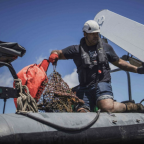
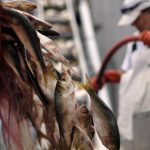
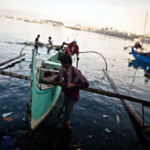
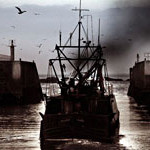

Social Profiles